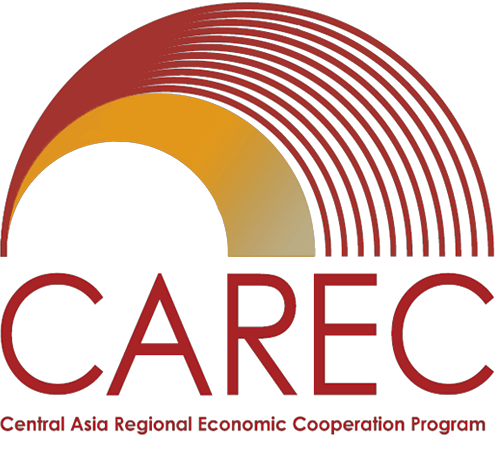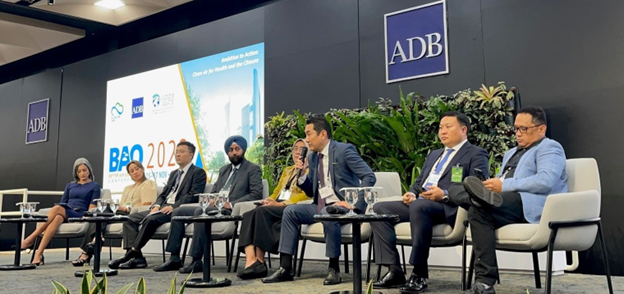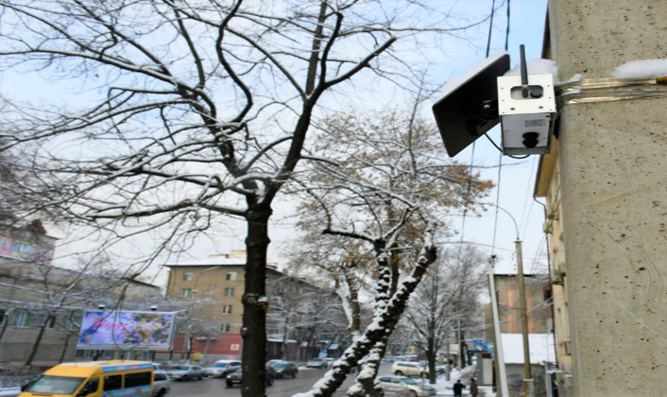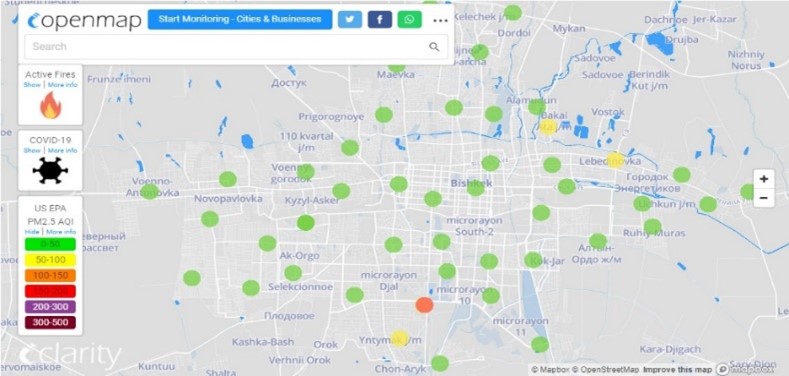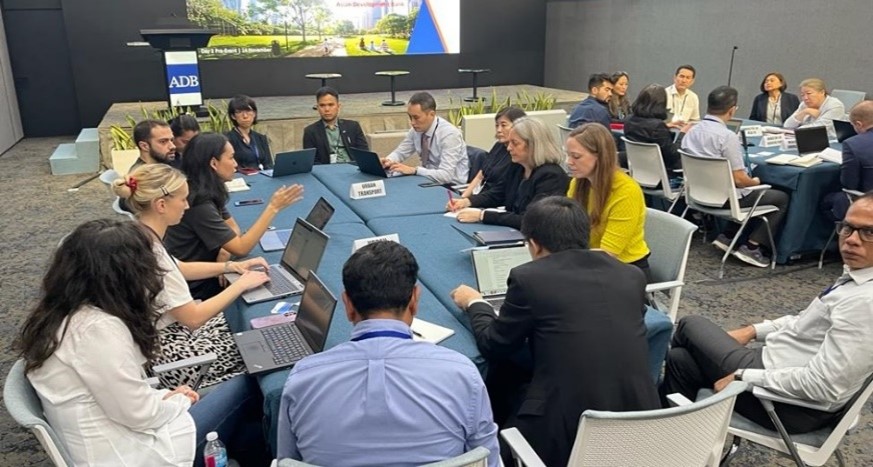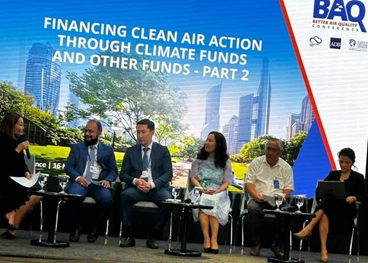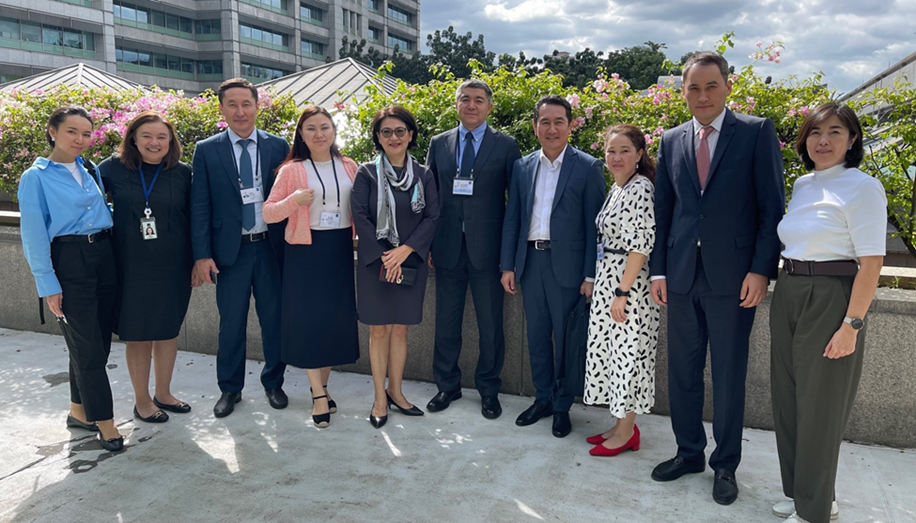Breathing New Life: ABEC's Clean Air Initiative at the Better Air Quality Conference 2023
In the frosty winters of Almaty and Bishkek, the struggle against air pollution is reaching a turning point. Eager to chart a new course, Kazakhstan and the Kyrgyz Republic representatives joined forces with over 700 delegates from 39 countries at the Better Air Quality (BAQ) Conference 2023 in Manila. The Asian Development Bank, a catalyst for change, is investing in real-time air quality sensors within the Almaty-Bishkek Economic Corridor, setting the stage for transformative actions based on insightful sensor data, as highlighted in this video.
This blog delves into the profound outcomes stemming from the active participation of the Kazakh and Kyrgyz delegations, shedding light on the critical need to address the pressing global health crisis of air pollution.

Nestled in valleys amidst towering mountains, Almaty and Bishkek grapple with the entrapment of air pollution, primarily fueled by coal-powered heating and vehicular emissions. The severity of the issue is starkly evident during the heating season in Bishkek, where the air pollution exceeds safe limits by up to 30 times WHO air quality guidelines.
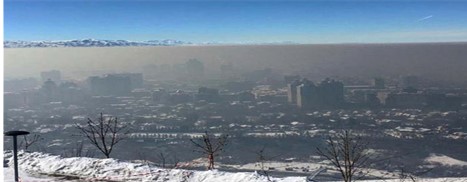
Mr. Azamat Temirkulov, Director of the Climate Finance Centre under the Ministry of Natural Resources, Ecology, and Technical Supervision of the Kyrgyz Republic, emphasizes the urgency, stating, “The situation demands immediate action, not only for environmental sustainability but for the health of our citizens themselves.”
In response to this call for action, local authorities in Almaty are implementing targeted measures outlined in the city’s 2025 Development Plan and 2030 Midterm Development Prospects. The ABEC Clean Air Initiative stands as a beacon of hope, aiming to counter these challenges through innovative solutions and regional collaboration.
The initiative, supported by the Asian Development Bank, marked its first milestone by financing 50 air quality sensors for Bishkek in 2021 and an additional 50 for Almaty in 2022. Tracking PM and NO2 by air quality sensors helps identify the primary sources of pollution and attribute their impact on health across areas in both cities. It serves as a baseline for air quality improvement projects, including ADB’s Urban Transport Electrification Project for Bishkek city.
Air quality data also helps increase the population’s awareness. Real-time data is available on the websites of Kazakh and Kyrgyz hydrometeorological agencies, the ABEC, and IQ Air, the main entry point for most people.
The BAQ 2023 conference provided a platform for the Kazakh and Kyrgyz delegations to explore novel approaches to combat air quality issues. In discussions with the Japan Fund for Joint Crediting Mechanism (JFJCM), representatives deliberated on projects supporting heat pumps, heat insulation, and the retrofitting of public buildings to enhance energy efficiency. The JFJCM expressed keen interest in these initiatives, which aim to replace inefficient heating systems with sustainable heat pump technologies, promising substantial reductions in carbon emissions and improved air quality.
The collaboration extended beyond borders as the Kyrgyz and Mongolian delegations exchanged insights on transitioning to cleaner technologies and the pivotal role of behavioral change in environmental sustainability. The Mongolian delegation stressed the significance of community engagement and highlighted the effectiveness of leveraging social media for awareness campaigns. The concept of mutual co-control, involving both communities and governments, emerged as a critical strategy for effectively implementing and monitoring environmental initiatives.
During the conference, the Kyrgyz delegation learned about the Energy Transition Mechanism (ETM), an Asian Development Bank initiative. Aligned with Bishkek’s aspirations to reduce air pollution, ETM aims to phase out coal-fired power plants in favor of clean, renewable energy sources. Mr. Temirkulov emphasized the unique opportunity ETM presents for cities like Bishkek to transition to a cleaner energy future, shortening the lifespan of outdated coal-fired power plants and promoting sustainable energy investments.
The Kazakh delegation, led by Ms. Botagoz Ibrayeva, an air quality expert at the Almaty City Development Center, focused on addressing traffic-related emissions. Drawing inspiration from Chinese city-level experiences and best practices in traffic pollution policies presented at BAQ 2023, the delegation envisages a shift to more sustainable urban transport as a crucial step toward establishing Low Emission Zones in Almaty. The conference also showcased successful electric bus projects, injecting renewed momentum into planned initiatives for piloting electric buses from Almaty to Bishkek.
BAQ 2023 stood a testament to the global commitment to combat air pollution and climate change. The participation of the Kazakh and Kyrgyz delegations underscored their dedication to implementing effective air quality solutions, paving the way for future collaborations and innovations. The collaborative spirit and innovative discussions witnessed at the conference have set the stage for impactful actions and partnerships. Mr. Temirkulov concluded, “We return home with renewed drive and clear strategies to improve our air quality, thanks to the insights and partnerships forged at BAQ 2023.”
ABEC Air Quality Initiative is fully aligned with the Climate Change Vision recently endorsed at the 22nd Ministerial Conference of the Central Asia Regional Economic Cooperation (CAREC) Program, a partnership of 11 countries, including Kazakhstan and the Kyrgyz Republic as well as international development partners. The development of climate-smart cities is one of the priority areas of the CAREC Climate Change Vision, which calls for actions on climate mitigation and adaptation in urban centers. This includes support for sustainable transport that relies on renewable energy, like electrified mass transit and private automobiles, low-carbon district and individual home heating, more efficient cooling, and increased reliance on “circular economy” measures. More still needs to be done with joint efforts.
Links
- BAQ 2023 Program Overview
- ADB Brief on Tackling Air Pollution in Bishkek
- Energy Transition Mechanism (ETM) by ADB
- ABEC Air Quality
- BAQ_A-A Development Stategy.pdf
- ABEC Air Quality Video
- Regional Action on Climate Change: A Vision for CAREC, November 2023
- CAREC 22nd Ministerial Conference Joint Ministerial Statement, November 2023
- Central Asia Regional Economic Cooperation Program
